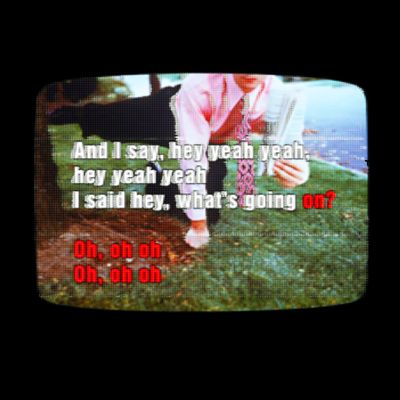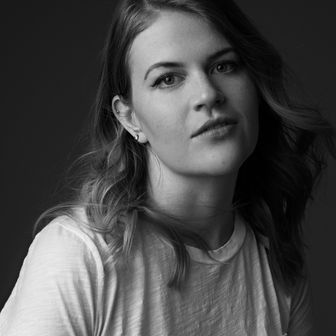
I was two-thirds of the way through a screaming rendition of Sheryl Crow’s “If It Makes You Happy” at a friend’s birthday party a few weeks ago, rapidly losing my breath and my audience, when I was reminded of an idea I had come up with months earlier, at a different karaoke party. It was a simple proposal, but one that I believed could vastly improve the lives of people who regularly lock themselves in dark rooms with their friends to sing along to instrumental recordings of popular songs. The idea is this: Karaoke songs should stop after the first chorus.
Under the current karaoke model, every performance starts promisingly enough. There’s the thrill of inspiration when the singer decides on the perfect number, the audience’s delight when they realize, Ooooooh shit, they’re gonna do “Fat Lip!” Then, the frenzied excitement of the opening notes. The energy builds and builds, and then explodes, beautifully, cosmically, into the first chorus, the singer’s voice melding with that of the audience — I don’t wanna waaaaste my time, become another casualty of society. For a moment, the boundaries of Self and Other dissolve. In the dim, crowded room, people are no longer separate individuals, they are a single mass of spirits and stardust, joined together in a transcendent, musical meditation.
But then, the song keeps going.
In a matter of seconds, the shared celebration devolves into a melodic hostage situation, with the onlookers eager to move on to the next number, and the performer desperate to be freed from the musical trap they set for themselves.
The second half of a karaoke song is the moment right after you finish masturbating, when you look, with newly sated eyes, at the porn you were watching, and click the browser shut with disgust. It is the day, a month or two into a new relationship, when you start to question whether you committed to the right person. Is this really what I wanted, you wonder.
Eventually, the song ends, the curse is broken, and everyone is swept up in song selection again. But wouldn’t the whole process be more pleasurable, wouldn’t all that pain and despair be avoided, if we just stopped karaoke songs after the first chorus? Unlike, say, a strict one-minute cut-off, this rule would allow some flexibility for the timing of each song, and performers could show off their range without subjecting themselves and others to the last two repetitive minutes that no one cares about anyway.
Imagine: Someone selects The Killers’ “Mr. Brightside,” everyone cheers, and just as the first “‘Cause I’m Mr. Brightside” dies, someone else selects Bruce Springsteen’s “I’m on Fire” and everyone gets to cheer again, and so on and so forth, an unending wave of karaoke delight. Yes, this would stunt some people’s performances, but sometimes sacrifices have to be made for the greater good.
Stop the songs after the first chorus, and allow karaoke to be the one place in the world where you don’t have to live with the consequences of your decisions, a place where you can, perpetually, be joyfully suspended in the first glittery moments of a relationship, or a porn. Perhaps this is a measure that should be taken up by local legislatures, or maybe it should be something more grassroots, an agreement reached between friends before they enter a karaoke room together. I’m not sure, but we should start having the conversation.


